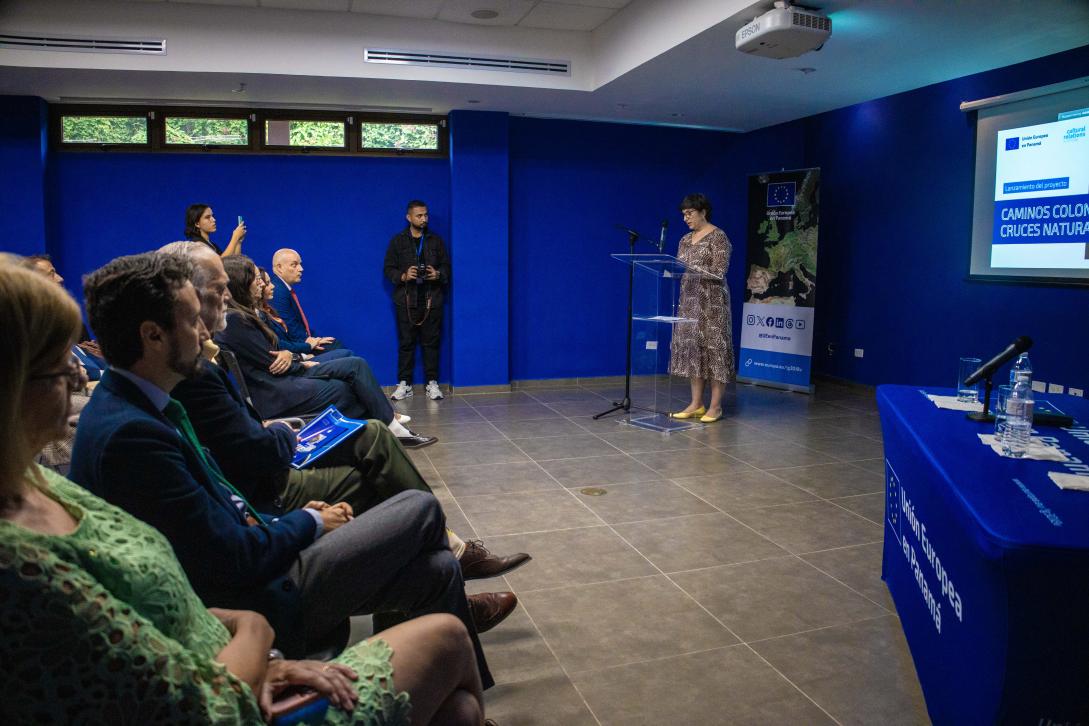The European Union in Panama launches the project Colonial routes, Natural crossroads

This project stems from the European Union’s recognition of Panama’s crucial role as a meeting point between North and South America, Europe, Africa, and Asia, bringing together both cultural and natural diversity. In this context, the project not only seeks to support Panama in its vital work to protect, recognise, and promote the Colonial Trans-Isthmian Route but also aims to initiate, for the first time, a reflection on the remarkable contribution of the Camino de Cruces and the Camino Real to relations between Panama, Europe, and the world. Accordingly, the project focuses on raising awareness, promoting the exchange of experiences and knowledge, and boosting sustainable tourism.
We always say that Panama is an ally of the European Union because we share common values. But today, we are proud to launch this project in support of the Colonial Trans-Isthmian Route, precisely to explore the origins of those shared values and their impact over the centuries up to the present day. I can confidently say that with today’s inauguration of the Colonial routes, Natural crossroads project, we are opening a new chapter in cultural relations between the European Union and Panama.
H.E. Izabela Matusz, Ambassador of the European Union to Panama
At the launch meeting, held at Panamá Viejo, the European Union Delegation presented the process behind the Colonial routes, Natural crossroads project. Following a period of consultation and dialogue with Panamanian and European stakeholders, led by the European Union between October and December 2023, the jointly drafted proposal was submitted to the Cultural Relations Platform (an EU programme implemented by a consortium led by the Goethe-Institut). Competing with 42 proposals from around the world, Colonial routes, Natural crossroads was selected as one of the 11 winning projects. It is the first project of the Cultural Relations Platform in the field of cultural heritage, and the third to be implemented in the Americas.
María Isabel Arrocha, the Panamanian expert leading the project alongside Italian Dr Eleonora Berti, explained the project’s three phases: (1) the establishment of a network of cultural heritage professionals from Europe, Panama, and Latin America; (2) the drafting of a guide on the Colonial Trans-Isthmian Route; and (3) the organisation of a final conference. The session concluded with an open dialogue, allowing participants to ask questions, share their perspectives, and present their current initiatives with the ultimate goal of fostering synergies and future collaborations.
This meeting demonstrated the strong commitment of all stakeholders involved in the Colonial Trans-Isthmian Route to working together throughout and beyond the Colonial routes, Natural crossroads project. These include representatives from the Ministry of Culture, the Tourism Authority, the Ministry of Foreign Affairs, EU Member States, as well as various institutions such as the Panamá Viejo Trust and CIHAC-AIP, recognised experts from civil society and the private sector, the EU Youth Loudspeaker in Panama, and members of local communities.
The presentation displayed during the event is available at:
CONTACT DETAILS
Ina KOKINOVA, in charge of cultural affairs at European Union Delegation to Panama: Ina.KOKINOVA@eeas.europa.eu
